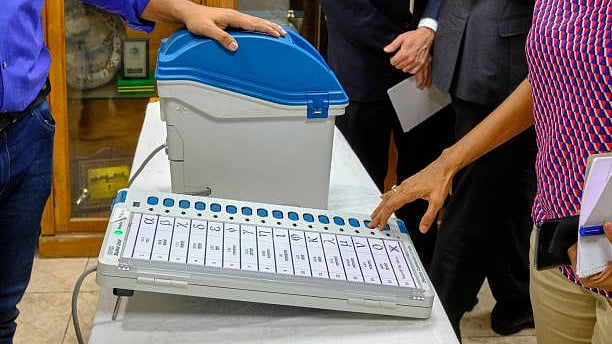
Image for representational purposes.
Credit: iStock Photo
In a politically charged decision, the Karnataka cabinet has recommended that all local body elections in the state be held using ballot papers instead of Electronic Voting Machines (EVMs). The move follows the Congress party’s persistent allegations that EVMs are vulnerable to tampering, thereby undermining the credibility of the electoral process. But the real test lies ahead: if Congress performs poorly in ballot-based elections, will it accept the results, or will the narrative shift once more? Ultimately, public trust in elections cannot depend on outcomes; it must rest on the strength of institutions and the integrity of processes.
Supporters of ballot papers argue that they restore voter confidence by offering a visible, tangible proof of voting. Unlike EVMs, ballot papers are immune to hacking, software glitches, or the suspicion of invisible manipulation. They also provide a physical audit trail that can be manually recounted in the event of disputes. While EVMs are backed by Voter Verifiable Paper Audit Trail (VVPAT) slips, critics argue these do not inspire the same trust as traditional ballot papers. However, ballot papers are far from flawless. They are vulnerable to booth capturing and ballot stuffing – malpractices that had dramatically declined after the introduction of EVMs. Counting ballots manually is slow, costly, and prone to errors. The environmental cost of printing millions of ballot papers is substantial. Ballot-based elections also tend to witness a higher percentage of invalid votes due to unclear markings, further diluting democratic choice.
Globally, ballot papers are still widely used. Countries like the United States, Canada, the United Kingdom, Germany, and Japan continue to rely on paper-based systems with varying levels of technological support. India pioneered large-scale use of EVMs precisely to overcome fraud and logistical challenges associated with paper ballots. By reverting to ballots, Karnataka risks rolling back a reform that had addressed many of these shortcomings. The credibility of elections is not about the medium – ballot or machine – but about the integrity of the process and the willingness of political players to respect the people’s verdict. Technology can help reduce flaws, and paper can offer visible reassurance, but neither is foolproof if political actors refuse to play fair. What matters most is building institutions strong enough to inspire trust regardless of who wins or loses. If Karnataka’s experiment with ballots restores confidence, so be it; if not, the demand for machines will resurface. In the end, democracy cannot afford to be held hostage to suspicion – it can survive only on trust, transparency, and acceptance of the people’s mandate.
